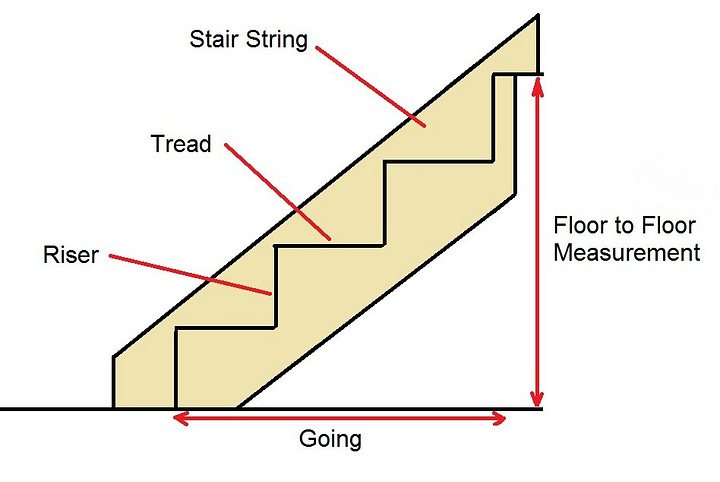I consider Charlottesville ground zero for the awakening of the nation.
We may not be able to recognize it now because we’re living in it, but 5, 10, 15, 20 years from now the nation and the world will remember these people and all of us for the changes we’ve brought.
—Charlottesville City Council Member Wes Bellamy
Canary in the Coal Mine
That’s what Wes Bellamy said at his last City Council meeting in 2019. I think there’s truth in that but not quite in the hopeful way that Bellamy probably meant it. Over the last fifteen weeks I’ve been sharing my experiences with an art project I managed—or mismanaged—back in 2017 along with Charlottesville’s history and my history in it. I’ve been trying to build a case for why I believe Bellamy’s “awakening” was like being startled awake in the night by a noise of the house collapsing, only to tell yourself that it was only a dream and go back to sleep.
Canaries were once taken into coal mines because carbon monoxide would kill the cheerful birds faster than the soot-faced humans. Those dead birds gave the miners fair warning and a chance to escape.1 But in America, the miners noticed pretty little Charlottesville feet up in the cage, and immediately rushed to the surface where they mourned us, buried us with great speeches about the injustice we suffered, and then promptly went back into the mines again—this time alone.


Lessons Unlearned
It’s not that Charlottesville’s Summer of Hate didn’t spark change. As we’ve seen, it ended any hope for Trump’s presidency to have bipartisan support, inspired Joe Biden to run against him, and crushed the Alt-Right as a nascent fascist movement.
In retrospect such outcomes may seem inevitable, but they were not. Not at all.
Chief Al Thomas—probably with the approval of City Manager Maurice Jones—deliberately kept Charlottesville police from interceding in the Unite the Right rally, allowing the Alt-Right—almost requiring the Alt-Right—to come into direct contact with counter-protestors as they approached the park where the rally was to take place. As Thomas predicted they started fighting. Those fights were the justification for shutting down Unite the Right as an “unlawful assembly.” There was nothing illegal about Thomas’ actions. There is no constitutional obligation for civic police forces to separate protesting groups; it’s just been the habit of recent police forces to do so. If other departments follow Thomas’ course, this has profound repercussions that I’ve not seen any national debate or conversation about.
If Thomas, when that “unlawful assembly” was finally declared, had quickly moved police in to protect the counter-protestors who were mostly local citizens, he would probably be a hero in Charlottesville today. Instead, the police formed a line that not only didn’t protect local citizens, but actually drove the fascists out of the park and straight into the counter-protestors, possibly as a petulant pox-on-both-their-houses revenge for criticism of CPD actions in July.
The resulting distrust between the city and its government, and between factions within the government, began a period of chaotic turnover in city hall that still haunts the city.
On the other hand had Thomas protected the “free-speech rights” of the Alt-Right from the beginning and allowed them to have their protest—which is the conventional approach of post-WWII policing—Donald Trump would probably have been reelected in 2020. (Biden wouldn’t have run, the Democratic establishment never would have backed Bernie Sanders, and there were no other candidates who would have beaten Trump.)2 Worse, the Alt-Right would today probably be a major American political movement with tens of thousands of supporters.
So the events in Charlottesville crushed the Alt-Right, set Donald Trump on his heels, and bought the establishment leaders of this nation seven years to reflect on where the country was going and ask some hard questions. Why had the Iraq War happened? Why had the Democrats when they held power never passed laws to protect abortion access? Why were lifespans in many demographics declining? Why so much homelessness, mental illness and drug use? Why were water systems were failing? How much was the climate changing and what should be done about it? Why didn’t the health care system work? Why had Hillary Clinton lost? How had a fascist movement almost got a foothold? Why was the country was turning against immigration, why were the police distrusted, and why were our streets on fire with protests?


Yet there was no reflection, and what happened in Charlottesville happened on a larger scale across the country. On January 6th, 2020 Trump, having lost reelection, urged his followers to attack the Capitol to prevent the official counting of the Electoral Votes. January 6th was Unite the Right 2.0. And it truly did unite the right but without the same public blowback. January 6th shook the establishment as Charlottesville had and led to widespread prosecutions as UTR had not, but January 6th didn’t frighten much of the public because it was an attack only on the government, not other citizens, and the whole crazy fiasco lacked the aggressive fascist symbolism of the Alt-Right. The years since UTR have destroyed all credibility among its instigators, but the years after January 6th have cemented it in the architecture of Republican and conservative culture and governance. All Republicans must pay fealty to the myth of the stolen election, even if they don’t believe it, and accept the January 6th riot as at worst good intentions gone wrong.
This reminds me of how in popular imagination segregation in the South was imposed violently by hate groups like the KKK, when in reality it was imposed by button-down conventional right-wing politicians.
Democratic national leaders fulminate about the threat to “Our Democracy” but in the minds of most voters, including most democratic voters, there isn’t much actual democracy left. A majority of Americans want public healthcare of some kind, debt forgiveness, rent controls and tenant protections, and limits to aid to Israel, but none of that seems to make a difference to the government. A majority of Americans want a society where everyone who plays by the rules can have a decent life with meaningful work, a place to live, and medical care. What the government wants to offer is a society where everyone who plays by the rules has an equal chance to compete for a small number of extraordinary lives with fortune-making careers, sprawling McMansions, and downloading one’s consciousness into a computer.
To be fair President Biden actually did appoint people who made real changes in breaking up monopolies, which is a dramatic change from the past twenty-five years, but how would anyone know it when his speeches don’t say so? His speeches and those of Kamala Harris could have been spoken in 2016, or 2008 for that matter. Neither Biden, nor Trump, nor Harris, question the Reagan-Clinton consensus. Hurricane Katrina, the Iraqi War, and the 2008 Great Recession should have buried it long ago, but we lack the FDR or the Reagan who can put together something else, a story about how people live and how their lives relate to the government.
The Near Future of the Country
What does the future look like? Well, for the US of A, not so good.
I mentioned Israel above, and that country matters for the upcoming election because it’s leader, Benjamin Netanyahu, is a confirmed Trump supporter and a fool.3 Making Biden and Harris look bad for Netanyahu is a bonus since it might help Trump get elected. So I expect him to bomb Iran before the election, and kill more, well, everyone—including Israeli soldiers and hostages. In such a close election that should put Trump in the White House. (I hope I’m wrong.)
Trump is as mentally feeble as his supporters have spent years claiming (accurately) that Biden is. I’ve heard claims that this would therefore effectively make JD Vance president:
Trump’s issues make it likely that a second Trump presidency would really mean a J.D. Vance presidency, even if Trump nominally remains in office.
I like Richardson usually but this is nonsense. No presidency has ever worked that way. Whoever controls Trump will run the White House while Vance twiddles his thumbs off in the Eisenhower Executive Office Building. When presidents are weak or infirm their staff rule the roost, not vice presidents.
A Harris victory is also a mystery. She is certainly sane and experienced enough. But voting for Harris isn’t a vote for preserving “Our Democracy” when she didn’t go through any sort of democratic process to become the nominee. There’s nothing democratic about Biden refusing to step down in time for there to be proper primaries. It’s horrifying. I’m voting for Harris, but not under any delusion that I’m preserving “Our Democracy” while doing so. I’m just trying to keep a senile man from running the country.
The Far Future of the Country
Farther out there often are rough cycles of change and crisis, because after about 80 years or so those who were adults in the previous crises are no longer around, and the ruling classes are now those who grew up with the mythology of the last crisis but not the adult experience of the crises. No one who was a leader during WWII would countenance our approach to wars in Ukraine and Israel just as no one who was a leader during the Great Depression would have supported the federal government’s response to the 2008 recession.
Our WWII leaders did a pretty good job; our current leaders are flubbing everything. That doesn’t bode well on a national scale for the problems ahead, and those problems are significant:
In living memory we’ve approached our economic life based on the idea of growth, but economic growth has always relied on population growth, which in America has relied on immigration and high birth rates (particularly the high birth rates of first-generation immigrants. But our economy doesn’t seem to move everyone steadily up the ladder, which has led to opposition to immigration. Without immigration and with domestic births slowing we’re looking at a very different future. Japan has managed to maintain social cohesion and prosperity with little immigration and population decline, but Japanese leaders are very careful and steady in ways U.S. leaders are not. They are a defeated military power facing reality; we are an arrogant colossus still steeped in delusion.
Our military must reduce commitments. We just don’t have the volunteers to fill the uniforms. The withdrawal of the U.S. Navy to more realistic commitments will drastically change international trade.
Climate change is going to be expensive. Humans have experienced couple of temperature spikes over geographically short periods, most recently at the end of the Younger Dryas. That period didn’t wipe out humans. But that period did see substantial change in how humans lived over a period of only a few thousand years. That’s certainly manageable, but not by governments that can’t figure out how to create affordable housing.
Increasing energy costs will affect everything—society, culture, manufacturing, farming, mining, and transport, especially transport.
Economically, however, it’s not all bad news. Yes, we’re probably on a downward trend from peak Jed Clampett cheap oil into the increasingly more-energy-expensive future, but that’s a slow staircase with treads as well as risers. The U.S. is actually right now an energy export nation (All the more reason to ditch the Middle East) due to fracking and while supplies last we will likely have a few decades of reindustrialization before the next drop. That means expansion of river and canal traffic. This isn’t great for Charlottesville since we lack a year-round navigable river, but it’s good for the country. Reindustrialization also eventually means the potential of organized labor, whether it’s the old unions or something else, and that means shifts in political power.
But economically it is partly bad news. The postwar American suburbs were the greatest experiment in social engineering in recorded history, and now the first age cohorts born in them are reaching the end of their lives, and we don’t know how that plays out. It means seniors in isolated subdivisions, in houses they can’t manage, without being able to afford in-home care due to labor costs. We haven’t discussed generations much but while the elderly are still part of the Baby Boom, society will at least try to meet this challenge, but in twenty years when it’s Gen-X in the suburbs, society will decide they made their beds, now they must die in them.
The Future of the City
That’s a grim picture, but it’s off on the horizon, not just far away in time, but far away from the actual lives that we and our descendants will live. Cities, as we’ve seen, are remarkably resilient. Charlottesville could theoretically be inhabited for thousands of years—maybe tens of thousands. (Or it could be abandoned like the first town in the area, Monasukapanough.)
Cities have tremendous power. We predate the Bronze Age. We were the original free market and the original socialism. We could hold our own against the warrior hordes, write literature that excels any aristocratic courtier, create, swap, build, innovate, and preserve.
As Unite the Right happened here many years before January 6th rocked the capital, we can figure out a different relationship between the government and the citizenry before it’s popular elsewhere. We can abandon the Reagan-Clinton consensus here even if national politicians do not. We can find housing and jobs for everyone even if the New York Times or Fox News hasn’t come around to that way of doing things. We can plan for a range of possible futures, as all prudent people should, instead of trying to bet on one future or jump on one bandwagon.
There’s even a clear time-tested template for the basics: We can cultivate prosperity in the age-old way simply by actually constructing buildings of 2-5 stories next to one another, residences above, workspaces below on narrow streets opening into public squares. After all, our downtown grid is our most valuable by acre; let’s build more of that.
As the citizens of a small city we have a much greater ability to impact our government. In Charlottesville we should create an office of elected mayor, decrease the power of the city manager, and radically expand city council. That will give far more citizens experience in how government works, how their opinions and ideas play out in real-world circumstances, and how to talk and debate with their fellow citizens. We would end up a few decades with hundreds of citizens with real skills at governing. Not just activists with experience in trying to affect government; citizens taking actual responsibility for government. With that amount of hands-on expertise our future can be very different from all those dreary conditions I described above—and very different from other cities and towns. Change always comes and it always starts somewhere. Why not here?
If we look out the windows now, our brains are drawn to notice a couple walking on the sidewalk, a waitress in a restaurant window, a drunk on a bench in the park. The sidewalk, restaurant, and park are mere background. That’s the scale of our daily minds, evolved for daily needs, but in Welcome to Charlottesville we’ve been discussing years and even centuries, so I ask you to look at those scenes with a longer mind, a mind for decades and centuries. The couple, the waitress, the drunk—these are the background. The sidewalk, restaurant, and park are what we notice. Someone created those things and gave them for the use of others. Think how extraordinary that is. In a city humans are an animal that raises not just its offspring, but generations into the future, including creatures not related at all.
What we do in the course of our lives is a gift for those who come after us. We live in the city our predecessors made and posterity lives in what we leave them in turn. Let’s imagine our children’s children living here, or moving back here, feeling safe, or grateful, or energize, and remembering all we’ve done.
Thanks for reading Blame Cannon! This has been Part 15 of Welcome to Charlottesville, a rough draft for a play I hope to stage this spring. Subscribe to get a heads-up on all that. Here are the sections in order: Part 1, Part 2, Part 3, Part 4, Part 5, Part 6, Part 7, Part 8, Part 9, Part 10, Part 11, Part 12, Part 13, and Part 14. Here’s an index if you’re looking for a place to get started.
Please subscribe and share!
Next week come back for our next series. We’ll be talking about the election and about generations.
Comments are welcome but please no personal insults or profanity!
If polls are to be believed Sanders would have beaten Trump in 2016 and might have done so in 2020, but Biden polled better by them. Remember that many of the Democratic leaders, before they finally unified behind Biden to keep Sanders out, supported terrible candidates like Mike Bloomberg.
For his dislike of democrats recall that Netanyahu once came to Washington, DC and criticized Obama to the U.S. Congress while Obama was the sitting president. Something no other foreign leader has ever done. For his foolishness recall that before Hamas attacked a year ago Israel was on the verge of normalizing relations with Saudi Arabia, a huge step, which is why Hamas attacked. Israel then tore up that diplomatic effort to revenge itself on Gazan civilians. Since WWII no country has more foolishly squandered a diplomatic opportunity.




